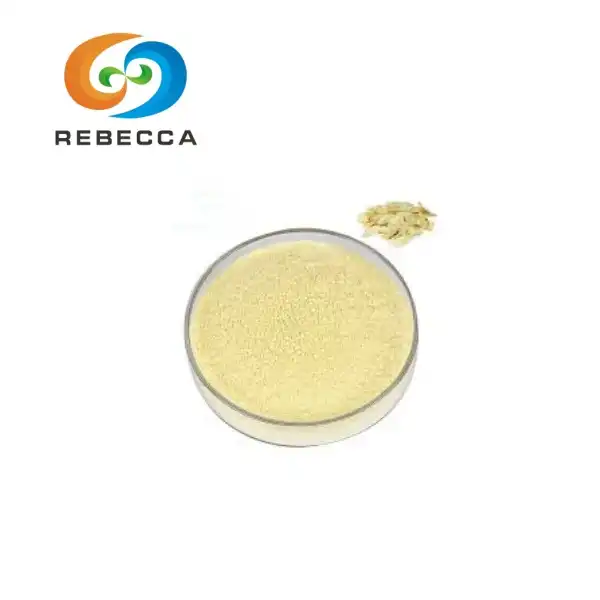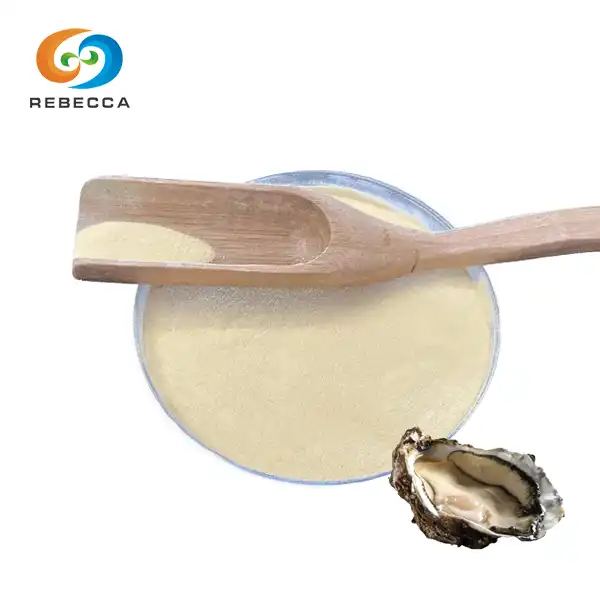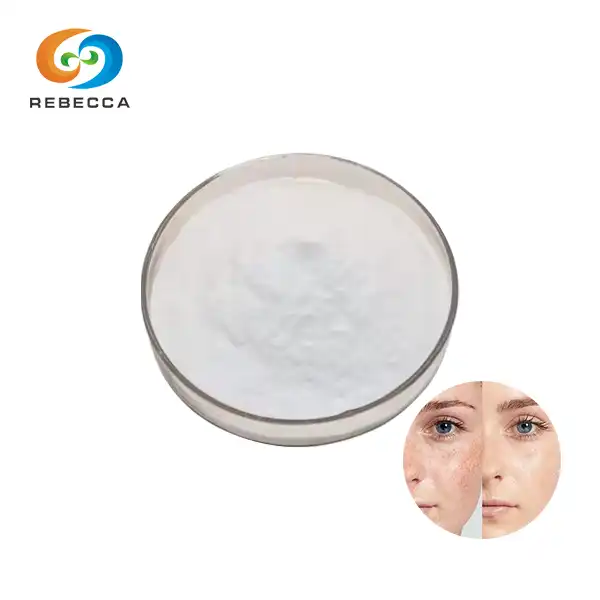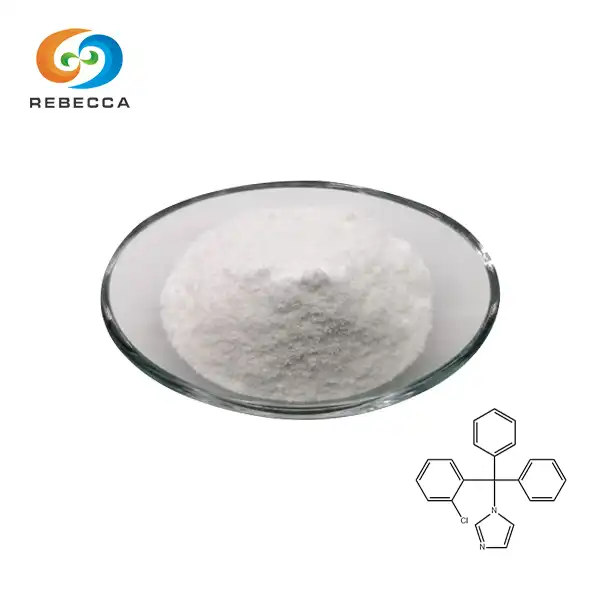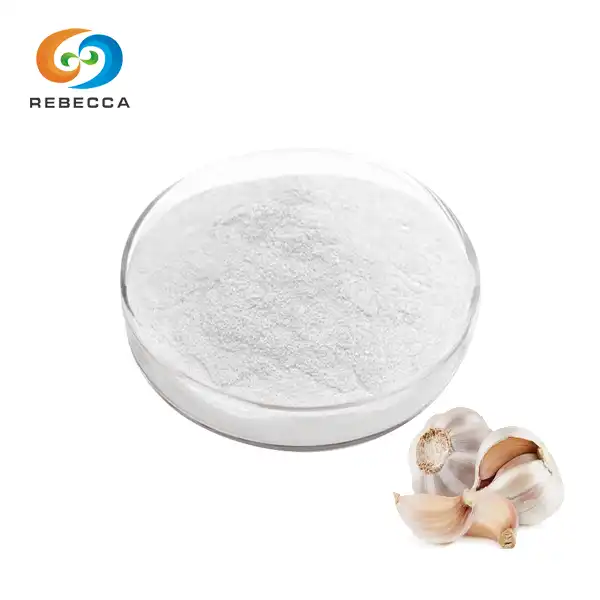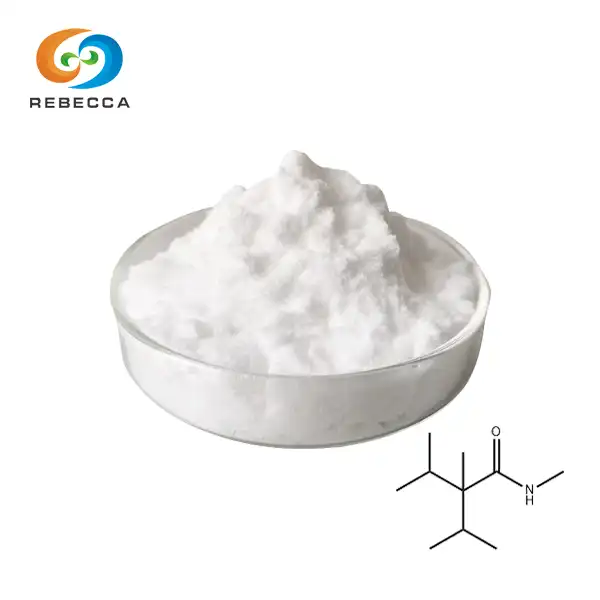What is fucoxanthin good for?
Fucoxanthin, a unique carotenoid found in brown seaweed like Laminaria japonica, has been gaining attention in the health and wellness community for its potential benefits. This powerful compound, with its distinct molecular formula C42H58O6, offers a range of promising effects that have piqued the interest of researchers and health enthusiasts alike. In this comprehensive guide, we'll explore the various ways fucoxanthin may contribute to your overall well-being and why it's becoming an increasingly popular supplement.
Top Benefits of the Best Fucoxanthin Powder
fucoxanthin powder, derived from brown algae, boasts a multitude of potential health benefits. Let's delve into some of the most noteworthy advantages this remarkable compound may offer:
Antioxidant Properties
One of the primary benefits of fucoxanthin lies in its potent antioxidant capabilities. As a carotenoid, fucoxanthin helps neutralize harmful free radicals in the body, potentially reducing oxidative stress and inflammation. This antioxidant activity may contribute to overall cellular health and longevity.
Anti-Inflammatory Effects
Chronic inflammation is at the root of many health issues. The best fucoxanthin powder has demonstrated anti-inflammatory properties in various studies, suggesting it may help mitigate inflammation-related conditions and support overall health.
Cardiovascular Health Support
Some research indicates that fucoxanthin may have a positive impact on heart health. It may help regulate cholesterol levels and improve blood lipid profiles, potentially reducing the risk of cardiovascular diseases.
Neuroprotective Potential
Emerging studies suggest that fucoxanthin might have neuroprotective properties. It may help safeguard brain cells from damage and could potentially play a role in supporting cognitive function and reducing the risk of neurodegenerative disorders.
Skin Health Enhancement
Fucoxanthin's antioxidant properties extend to skin health as well. It may help protect the skin from UV damage, reduce the appearance of wrinkles, and promote overall skin vitality.
How Fucoxanthin Supports Weight Management?
One of the most intriguing aspects of fucoxanthin is its potential role in weight management. This unique compound has shown promising results in various studies related to fat metabolism and weight control.
Boosting Metabolic Rate
Fucoxanthin has been observed to increase the expression of uncoupling protein 1 (UCP1) in white adipose tissue. This protein plays a crucial role in thermogenesis, essentially turning white fat into brown fat, which is more metabolically active. By promoting this conversion, fucoxanthin may help increase the body's overall metabolic rate.
Enhancing Fat Oxidation
Research suggests that fucoxanthin may enhance the body's ability to oxidize fat. This means it could potentially help the body burn fat more efficiently, contributing to overall weight loss efforts when combined with a balanced diet and regular exercise.
Regulating Fat Storage
Fucoxanthin has been shown to influence the expression of certain genes involved in fat metabolism. It may help regulate the storage and breakdown of fats in the body, potentially leading to reduced fat accumulation, particularly in the abdominal area.
Appetite Regulation
Some studies indicate that fucoxanthin may have an impact on leptin, a hormone that plays a key role in appetite regulation. By potentially influencing leptin levels, fucoxanthin might help control hunger and reduce overall calorie intake.
Using Fucoxanthin Powder for Metabolic Health
Beyond its potential effects on weight management, fucoxanthin powder may offer significant benefits for overall metabolic health. Here's how this brown seaweed extract could support your metabolic well-being:
Blood Sugar Management
Fucoxanthin has shown promise in helping to regulate blood sugar levels. It may improve insulin sensitivity and glucose uptake in cells, potentially aiding in the management of diabetes and metabolic syndrome.
Liver Health Support
The liver plays a crucial role in metabolism, and fucoxanthin may offer protective benefits for this vital organ. Studies suggest it could help reduce liver fat accumulation and improve overall liver function, contributing to better metabolic health.
Mitochondrial Function Enhancement
Mitochondria are the powerhouses of our cells, responsible for energy production. Fucoxanthin has been observed to enhance mitochondrial function, potentially leading to improved energy metabolism and overall cellular health.
Lipid Profile Improvement
Research indicates that fucoxanthin may help improve lipid profiles by reducing triglycerides and increasing HDL (good) cholesterol levels. This could have positive implications for overall metabolic and cardiovascular health.
Conclusion
Fucoxanthin, with its unique molecular structure and diverse range of potential benefits, represents an exciting frontier in natural health supplements. From its antioxidant properties to its potential role in weight management and metabolic health, this brown seaweed extract offers a multitude of reasons to consider incorporating it into your wellness routine.
However, it's crucial to remember that while the research on fucoxanthin is promising, many studies are still in their early stages. As with any supplement, it's essential to consult with a healthcare professional before adding fucoxanthin to your regimen, especially if you have any existing health conditions or are taking medications.
The best fucoxanthin powder should be derived from high-quality brown seaweed sources like Laminaria japonica, with a purity of ≥98% and appropriate specifications (such as 5%~50% UV for fucoxanthin content). When choosing a fucoxanthin supplement, look for products that undergo rigorous testing methods like UV and GC to ensure quality and potency.
For more information about fucoxanthin powder and other natural herbal extracts, please don't hesitate to contact us at information@sxrebecca.com. Our team of experts is always ready to answer your questions and help you find the best solutions for your health and wellness needs.
References
1. Maeda, H., Hosokawa, M., Sashima, T., Funayama, K., & Miyashita, K. (2005). Fucoxanthin from edible seaweed, Undaria pinnatifida, shows antiobesity effect through UCP1 expression in white adipose tissues. Biochemical and Biophysical Research Communications, 332(2), 392-397.
2. Gammone, M. A., & D'Orazio, N. (2015). Anti-obesity activity of the marine carotenoid fucoxanthin. Marine drugs, 13(4), 2196-2214.
3. Miyashita, K., Nishikawa, S., Beppu, F., Tsukui, T., Abe, M., & Hosokawa, M. (2011). The allenic carotenoid fucoxanthin, a novel marine nutraceutical from brown seaweeds. Journal of the Science of Food and Agriculture, 91(7), 1166-1174.
4. Peng, J., Yuan, J. P., Wu, C. F., & Wang, J. H. (2011). Fucoxanthin, a marine carotenoid present in brown seaweeds and diatoms: metabolism and bioactivities relevant to human health. Marine drugs, 9(10), 1806-1828.
5. Abidov, M., Ramazanov, Z., Seifulla, R., & Grachev, S. (2010). The effects of Xanthigen™ in the weight management of obese premenopausal women with non‐alcoholic fatty liver disease and normal liver fat. Diabetes, Obesity and Metabolism, 12(1), 72-81.
_1730691017423.webp)










